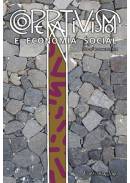THE ISSUE OF COOPERATIVES’ INCOME TAXATION - CONTRIBUTION BASED ON THE PORTUGUESE LAW
Abstract
In Portugal, the cooperative sector has had a specific tax regime since 1888. Over this period, some stable features have emerged. One of them is the existence of two separate regimes applying according to the sector of activity to which the
cooperative belongs. For one group, which includes agricultural and consumption cooperatives among others, and which this study concerns about, the tax regime involves exemption of cooperative surplus and taxation of income from operations with third parties and from “activities unrelated to the cooperative specific purposes.” Being the issue of tax benefits granted to cooperatives a subject of great relevance, it is crucial to determine whether cooperative surpluses are to
be seen as cooperatives’ income. In case we find that cooperative surpluses are not to be seen as cooperatives’ income, the non-taxation of surpluses is not to be seen as a tax incentive. As for income derived from activities “unrelated to the cooperative specific purposes”, the correct understanding of this rule requires a thorough examination of how extracooperative activities can be in connection with the specific cooperative activity.









